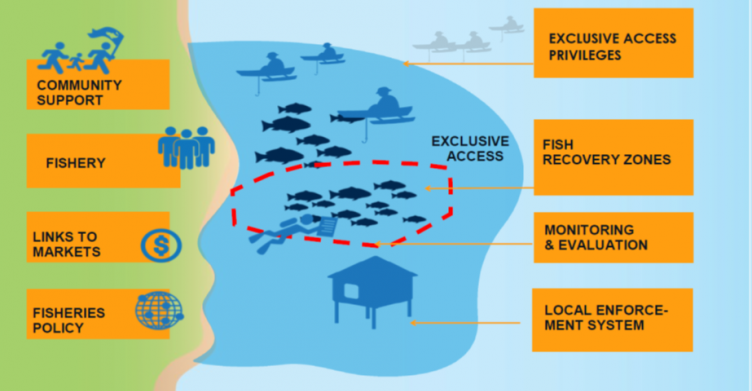
Fisheries is important in Myanmar including in the Gulf of Mottama, 12.68% of fishermen in Mon State and 31.11% of fishermen in Bago Region are reached through the Gulf of Mottama project. Over-fishing is critically important for several reasons. 1) Fisheries recruitment (baby fishes) can be affected, 2) Job opportunities and 3) food security.
Small-scale fishers consist of 18.8% (Mon state) and 31.7% (Bago Region) of the jobs in the GoMP areas and they catch half of all fish landed. They are also among some of the country’s poorest, fishers have the highest level of poverty incidence of any sector.
This makes them some of the most vulnerable to disasters and climate change. So, you quickly see that overfishing isn’t just an environmental problem. It’s becoming a humanitarian crisis. Marine biodiversity loss and fisheries decline have an impact on Myanmar. Fish provides more than 50% of the Myanmar’s dietary protein. Many of the estimated 1.7 million small-scale fishers, are among the poorest of the poor. These poorest fishermen catching an average of 3 kg/day and earn about MMK 3,500-4,000/day).
If people are the cause, then they are the solution as well. Fisheries face complex challenges such as lack of enforcement of fisheries laws prevents sustainable management, small scale fishers have limited access to markets, political / leadership changes and lack of data prevent informed decision making.
Fisheries co-management is flexible and cooperative management of the aquatic resources by the user groups and the government. The responsibility of the natural coastal resources is shared between the user groups and the government. The communities and the different government departments are involved in the decision making, implementation and enforcement processes of co-management.
There are different types of Fishery Management approaches depending on the level of participation between the government and the communities. These five different kinds of management have been identified.
Instructive: Instructive management is top-down management from the government. The government instructs the fishermen as to what laws and policies they are required to follow. Information is only shared with the communities towards the end of the planning process.
Consultative: In consultative management, the government consults with the community either through public hearings or advisory boards. The government is not required to implement any of the suggestions or comments into the policy. This consultation can also serve merely as a symbolic gesture rather than something that the government will necessarily implement.
Cooperative: In cooperative management, there is degree of co-management of the resource by the government and the user group. The responsibility is shared by both parties. Certain areas such as access rules may be the responsibility of the user group.
Advisory: In advisory management, users decide what decisions should be made and advise the government as such, the government than endorses the decision.
Informative: In informative management, the user group makes all the decisions, and informs the government once they have decided.
Co-management is different from community management as the government plays an important part in the decision-making process. In community management the laws are generally not enforced as governmental laws, rather a community guide and framework, this can make execution difficult. In co-management the user group and the government develop laws and regulations together and work towards implementing them jointly. If community-based management forms part of national legislation, or developmental plans than it is classified as co-management.
The community, specifically the users of the natural resources, often possess local knowledge that can aid the government in the decision-making process, therefore co-management is the combination of scientific and traditional knowledge, this process ensures the best possible outcomes. If the community is involved and agrees on the new laws and decisions, they are more likely to comply and may even aid in ensuring the new laws are enforced and maintained.
Co-management is known to be time consuming, as one must spend time collecting surveys and gaining trust within the community. Strong lines of communication between the government, academia and the community are essential. Educating the community is necessary so that more informed decisions can be made.
Existing laws and policies may need to be altered, or new ones created so as to allow for the structure of co-management. Conflicting views and economic versus conservation issues appear to be some of the main limitations to a successful co-management process. Lack of funding, data and resources are also main contributing factors to un-successful co-management. Co-management requires constant communication and effort.